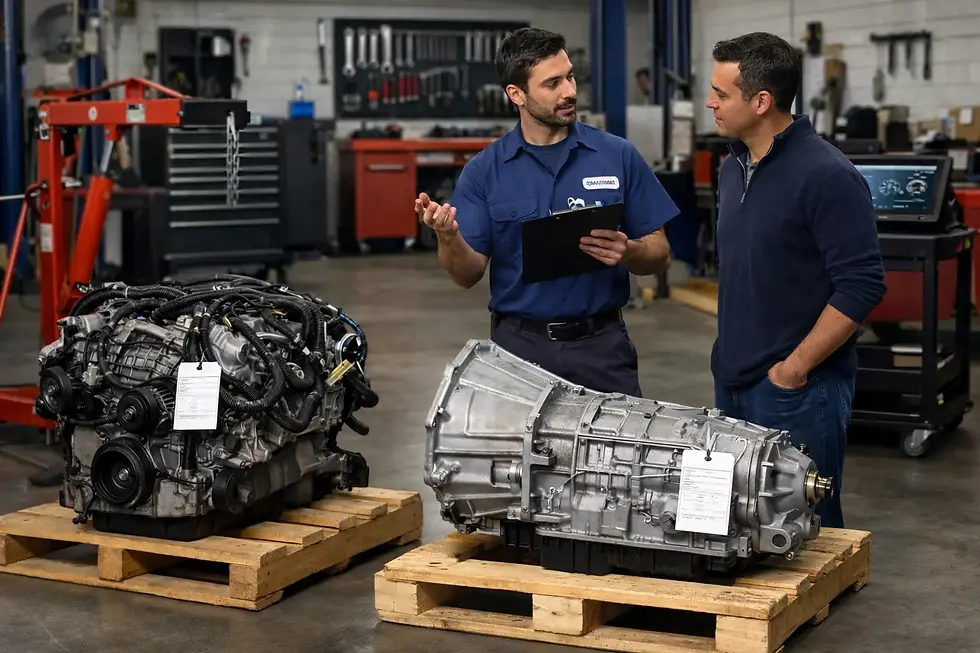5 Common reason why engine is misfiring
- blueprismautomotiv
- Aug 26, 2024
- 2 min read
Engine misfires can be frustrating and potentially damaging if not addressed promptly. Misfires occur when one or more of the engine’s cylinders fail to produce power due to incomplete or failed combustion. Here are five common reasons why an engine might misfire:

1. Faulty Spark Plugs
Spark plugs are responsible for igniting the air-fuel mixture in the engine’s cylinders. Over time, spark plugs can wear out, become fouled by carbon deposits, or suffer from other issues like cracks. When a spark plug fails to fire correctly, it results in a misfire. Regularly replacing spark plugs and ensuring they are properly gapped can help prevent this issue.
2. Bad Ignition Coils
Ignition coils are responsible for converting the battery’s voltage into the necessary power to create a spark in the spark plugs. If an ignition coil is damaged or worn out, it can cause a weak or inconsistent spark, leading to a misfire. Ignition coils often fail due to excessive heat, electrical overloads, or exposure to moisture.
3. Clogged or Faulty Fuel Injectors
Fuel injectors deliver fuel to the engine’s cylinders at the right time and in the right amount. If an injector becomes clogged with dirt or debris, or if it fails electrically, the cylinder will not receive the correct amount of fuel, causing a lean misfire. Regular use of fuel system cleaners and periodic injector servicing can help maintain proper function.
4. Vacuum Leaks
A vacuum leak occurs when unmetered air enters the engine, disrupting the air-fuel mixture. Common sources of vacuum leaks include cracked or broken hoses, intake manifold gaskets, and throttle body gaskets. A vacuum leak can cause a cylinder to run too lean, leading to misfires. Diagnosing and fixing vacuum leaks often requires careful inspection of the engine’s vacuum lines and intake components.

5. Low Compression
Compression is essential for proper combustion. If a cylinder has low compression, it means that the air-fuel mixture cannot be adequately compressed before ignition, leading to a misfire. Causes of low compression include worn piston rings, damaged valves, or a blown head gasket. A compression test can help identify this issue, but repairing it may involve significant engine work.
Engine misfires should not be ignored, as they can lead to more severe engine damage over time. If you experience a misfire, it’s crucial to diagnose and repair the issue promptly. Whether it's a simple spark plug replacement or more complex repairs like fixing a vacuum leak or addressing low compression, addressing the root cause is essential for maintaining engine performance and longevity.




Comments